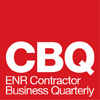
Construction equipment dealers are increasingly bypassing third-party auctioneers to dispose of used machines themselves. The do-it-yourself auction strategy can both maintain valued customers and groom future buyers. It additionally enables dealers to forgo commission fees, which can run 12% to 15% of the final auction price although costs climb higher for smaller machinery and first-time clients, say industry experts. Equipment requiring pre-auction preparation and repair can increase total fees, too.
"Everyone wants to be in the auction business," says James J. Jeter, president IronPlanet Inc., a Pleasanton, Calif.-based, 11-year-old Internet auctioneer. "But, it's not as easy as it seems. It has taken us a long time for us to cultivate our supply and demand network. The key is having the liquidity to drive the price performance to make the economics work."
Staging a successful equipment auction can be a pricey proposition requiring hundreds of man-hours over several months for planning and preparation, including equipment acquisition, evaluation, testing, transportation and pricing. There are also cataloging, advertising, staging and marketing expenses. But a good auction can be worth the effort.
IronPlanet, for example, saw a record $568 million in gross sales in 2011 for a 15% increase over the previous year. The privately held company backed by venture capitalists Accel Partners and Kleiner Perkins Caufield and Byers, with machine makers Caterpillar, Komatsu and Volvo as investors, sold over 37,000 items in 2011 or 14% more than in 2010. Ritchie Bros. Auctioneers has similarly seen robust results.
The Vancouver-based, 55-year-old company sold a record $3.9 billion in equipment last year or 5% more than in 2011. Ritchie Bros. held 328 unreserved auctions worldwide in 2012, selling $1.3 billion of machinery to online bidders for an 18% increase over 2011; it marks the company's highest single-year online sales ever. Ritchie Bros. and IronPlanet both leverage technology to expand the global footprint of potential buyers, thereby ratcheting bidding competition for premium pricing. Strong auction numbers have made it more tempting than ever for others to try and duplicate the same success.
Caterpillar, for example, pulled together a loose network of U.S. dealers in 2008 to create CAT Auction Services. The Eagan, Minn.-based privately held entity conducts unreserved auctions, with a 10% handling fee on lots of $2,500 or less. Online bidders pay a 2% premium. CAT Auctions made its Nevada debut on Dec. 19 in Henderson, 16 miles southeast of downtown Las Vegas. Cashman Equipment Co. sold more than 400 pieces of mostly CAT earth-moving machinery, including backhoe loaders, dozers, hydraulic excavators, wheel loaders, and motor graders. The event generated $11 million in sales, with 80% of the equipment going out-of-state to buyers as far away as Australia and Saudi Arabia. Online bidding was responsible for half of all purchases based on dollar value.
Cashman was pleased with the event, crediting "a great mix of high-quality, well-maintained construction equipment, with detailed inspection reports," for the strong inaugural showing, said Cashman general manager Todd Gilligan in a statement. One fleet manager in attendance, however, who requested anonymity, said the event lacked the polished efficiency of a Ritchie Bros. production; and while commission fees were lower, so were the final sale prices, he said.
Like CAT, United Rentals uses the auction market for fleet maintenance. The Greenwich, Conn.-based publicly traded company sold over 550 lifting, aerial and dirt equipment items, including a large selection of reconditioned boom lifts, on March 26-27. The two-day event took place in North East, Md., but included four additional Northeast rental stores via virtual ramps where equipment was displayed on huge theater screens for online bidders. United hired Ritchie Bros. to conduct the event on their behalf following a successful 575-item single-owner auction across six different mid-Atlantic locations on Nov. 2, 2011.
"It puts us a curious position where we are both a customer and competitor," says Ritchie Bros. CEO Peter J. Blake. "I don't mind the competition. It's easy to enter the business, but in order to be successful, you need to operate on a broad global scale."
Ritchie Bros. has 110 locations in 25 countries and 44 auction sites worldwide. The firm, which is publicly traded on both the New York and Toronto Stock Exchanges, will hold its first unreserved auction in China in early 2013 in Beijing's Shunyi District. Ritchie Bros. attracted more than 5.5 million unique visitors to its 21-language website in 2012, which is 38% more than the previous year.
For United, however, auctions are more about brand building, attracting future customers and efficient management of a $7.23-billion equipment fleet in 3,300 classes. The 16-year-old firm, which last year bought rival RSC Holdings for $4.2 billion, is the world's largest equipment rental company with 836 locations in 49 states and 10 Canadian provinces.
"An auction raises public awareness about our company, while attracting potential buyers to the market," says United Rentals CEO Michael J. Kneeland. "It's basically an open house for our customers to look at our facilities and products, and possibly buy something they didn't know they needed," he adds.
"If you're a large producer of used equipment, you're going to look for multiple ways to dispose of inventory rather than relying on one single outlet," says Jeter. "But, moving large amounts of inventory quickly isn't always easy."
Indeed, in 2010, United launched an online portal for selling owner-direct, fixed-price used equipment. Ritchie Bros., meanwhile, is rolling out a similar online negotiated equipment marketplace this year called EquipmentOne.com; it's the successor to AssetNation, an online surplus and salvage asset marketplace the company bought for $64 million in cash in May.
"We have always had competition anywhere we go. I don't mind it," Blake says. "Ultimately, you're measured by your customers and the value you generate."




Post a comment to this article
Report Abusive Comment